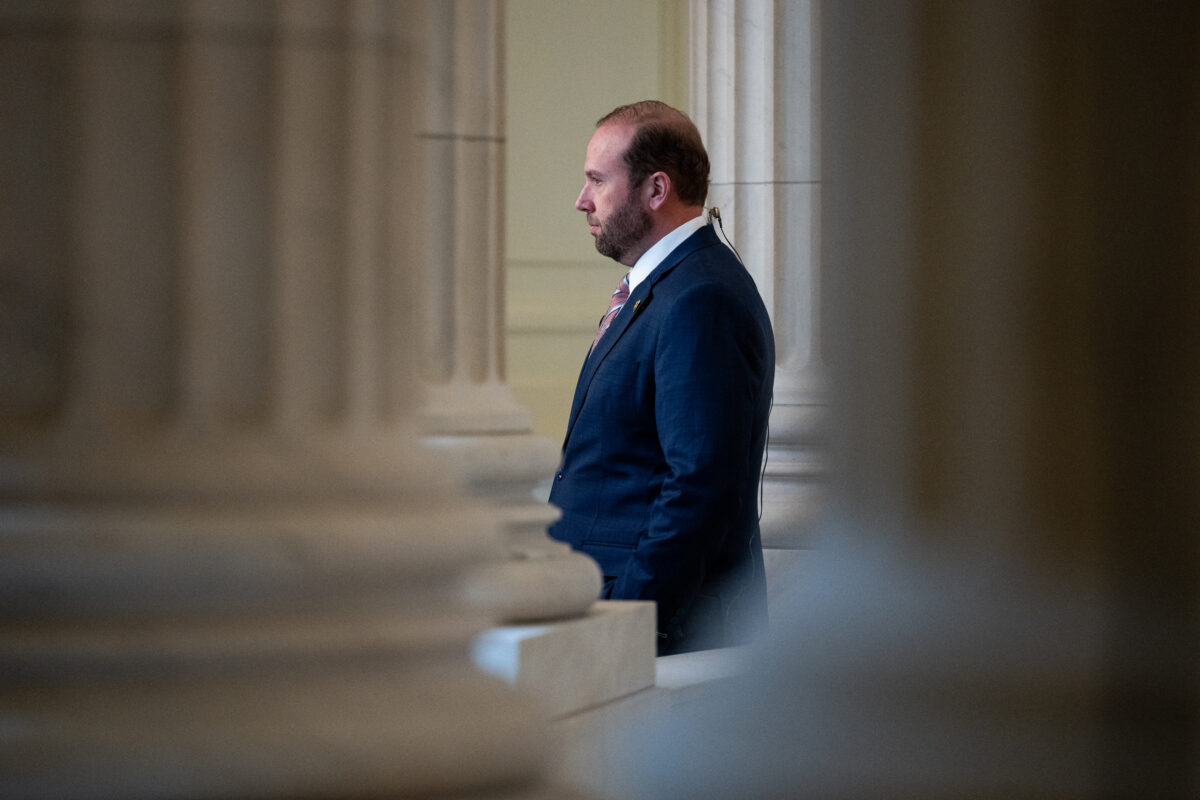House Ways and Means Committee requests answers from four top schools on campus antisemitism
Rep. Jason Smith appeared to question Cornell, Harvard, MIT and Penn’s tax exempt status in letters to the schools’ leaders

Bill Clark/CQ-Roll Call, Inc via Getty Images
Rep. Jason Smith (R-MO) waits to do a television news interview in the Cannnon House Office Building on Tuesday, January 30, 2024.
House Ways and Means Committee Chairman Jason Smith (R-MO) wrote on Thursday to the leaders of Cornell University, Harvard University, the Massachusetts Institute of Technology and the University of Pennsylvania regarding antisemitism on their campuses, suggesting that the schools are at risk of losing their tax-exempt statuses.
He requested that the schools provide information and documents relating to their efforts to combat antisemitism — making his committee the second to request such documentation from the four institutions, following the Education and Workforce Committee. Smith’s letter specifically notes that the universities enjoy tax-exempt status, which falls under his committee’s purview.
The new investigation comes amid calls for Congress to reexamine or potentially revoke tax-exempt status from schools not doing enough to combat antisemitism on their campuses.
“The focus of the Committee’s inquiry and questions is to understand what universities like yours are doing, if anything, to change course drastically and address what has gone unaddressed for years,” the letters read. “Doing so is essential to justifying the generous tax-exempt status that the American people have provided institutions like yours for decades.”
The letters emphasize that the current spike in campus antisemitism, “did not arise from new opinions developed in a matter of hours or days after the Hamas attacks,” instead “reveal[ing] a culture of antisemitism that developed and grew beneath the surface for decades.”
Smith said that the situation requires “serious institutional change” and that the committee and American people “expect” such action.
The letters request specific information on disciplinary action against students who have engaged in antisemitic activities; assessments and responses from the school leaders on why antisemitism has exploded on campus and what they can do about it; statements and drafts of statements on antisemitism, harassment and incitement to violence; and information on foreign funding that the schools have received.
The letter provides an April 4 deadline for these responses.
Each letter also addresses specific situations and concerns about particular incidents and anti-Israel groups on each campus, including, at Harvard, the appointment of Derek Penslar to lead the school’s antisemitism task force and resignations by other task force members.










